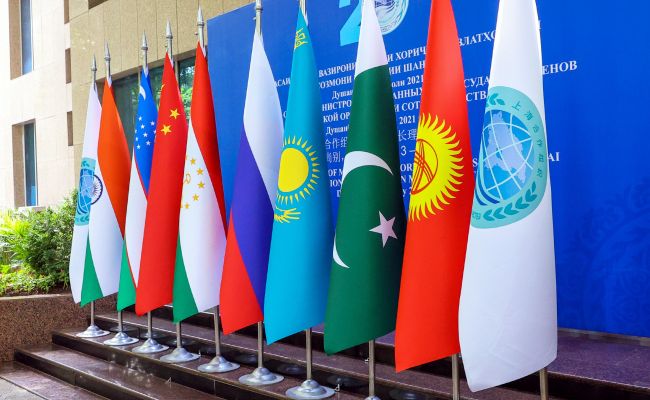
Why is Shanghai Cooperation Organization's circle of friends expanding?
By Rhod Mackenzie
The 22nd Meeting of the Council of Heads of Government of the Shanghai Cooperation Organisation (SCO) Member States is scheduled for Thursday in Bishkek, the capital of Kyrgyzstan.
This will be the first face-to-face meeting of the prime ministers of the SCO member states subsequent to the COVID-19 outbreak and also the first official meeting of the SCO since Iran attained full membership of the group.
Amidst a progressively intricate global landscape, it is expected that the prime ministers will undertake detailed discussions regarding implementing the consensus established at the SCO summit in July. Additionally, they will strive to advance the organization's development strategy and devise pragmatic measures for cooperation across domains including security, the economy and trade, connectivity, and people-to-people exchanges.
Since its establishment in Shanghai back in 2001, the SCO has grown from a regional organisation with six members to become the largest and most populated regional institution globally. There are currently nine full members, including Kazakhstan, China, Kyrgyzstan, Russia, Tajikistan, Uzbekistan, India, Pakistan and Iran, in addition to three observer countries and 14 dialogue partners. What prompted the SCO to expand its reach?
Iran became the ninth member of the organization in July, whilst Belarus is undergoing procedures to join the SCO.
The United Arab Emirates reportedly wishes to become an SCO member. Syria, Iraq, Israel, Bangladesh, and Vietnam are also hopeful of joining as dialogue partners or observers.
According to Deng Hao, secretary general of the China Center for SCO Studies, the expansion of SCO recognises the Shanghai Spirit. "An increasing number of countries recognize that the Shanghai Spirit offers them fresh avenues, alternative options, and renewed optimism for overcoming the current global crisis and emerging from the present developmental challenges."
Su Xiaohui, a scholar at the China Institute of International Studies, highlighted that over the past 10 years, the SCO has been leading the way, promoting the vision of establishing an SCO community with a joint future and carrying on the Shanghai Spirit, which advocates for mutual trust, mutual advantage, equality, consultations, acknowledging divergent civilizations, and striving for shared development.
Su added that the growth of the SCO enables it to concentrate on a wider range of subjects, assume more responsibilities and enhance its impact.
Ding Xiaoxing, director of the Institute of Eurasian Studies at China Institutes of Contemporary International Relations, mentioned that equality constitutes a crucial aspect of the SCO, hence all members have the same voting rights and veto power. He further explained that this explains why the circle of members and associates of the SCO is widening.
The SCO is devoted to making decisions through consensus, unlike other organizations that are subject to manipulation by powerful entities, Ding remarked.
He also emphasised that the SCO follows the principle of non-alignment and does not target any regions or organisations, which he stated is distinct from certain organisations inherited from the Cold War era whose objective is to identify rivals and adversaries.
Ding further added that the SCO aims to advance development through collaboration and attain security via cooperation. "That's why an increasing number of countries are keen to foster ties with the SCO."
